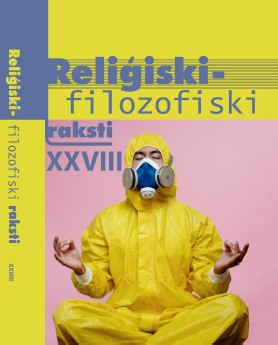THE CONCEPT OF LIFE IN CONTEMPORARY CHRISTIAN BIOPHILOSOPHY
THE CONCEPT OF LIFE IN CONTEMPORARY CHRISTIAN BIOPHILOSOPHY
Author(s): Krišjānis LācisSubject(s): Christian Theology and Religion, Religion and science , Philosophy of Religion, Philosophy of Science, Human Ecology, Environmental interactions
Published by: Latvijas Universitātes Filozofijas un socioloģijas institūts
Keywords: Christianity; biophilosophy; life; neoscholastics; phenomenology; selfmovement; teleology; affectivity; irreducibility;
Summary/Abstract: In the lively debates of the first decade of the 21st century over the relationship between religion and science, whereby Christian thought was pushed? in the apologetic corner when discussing the matters of biology, evolution, the origin and functioning of life, two important, undisputed premises remained in the background: (1) that this debate was and continues to be a fight between different biophilosophies and (2) that these biophilosophies operate under the guidance of different notions of life. This article focuses on some of the most influential figures in the Christian biophilosophy of the last decade, who in their work thematize the concept of life – shifting the question from the usual ‘how life originated’ to ‘what is life?’. Biophilosophy as a metaphysically broader, more fundamental and more inclusive concept is used in the article to distinguish it from the philosophy of biology as a sub-discipline of the philosophy of science, which is subjected to the theoretical questions of the relatively recently emerged biological science. This allows us to talk about various biophilosophies, such as Kantian, Cartesian, Aristotelian or Christian, whereby the conceptual center is determined by the characteristic concept of life, from which further philosophical questions related to the problematics of living beings are derived hierarchically. Christian biophilosophy, on the other hand, refers to the use of philosophy as a discursive, rational, hermeneutic, or heuristic means for Christian ends (based on Christian presuppositions and conceptual field derived from the faith in Revelation) that focus on the notion of life and reflection about living beings. This article examines the latest Christian biophilosophy through such influential trends and thinkers as neosholastics, Edward Feser, Alvin Plantinga, Michael Hanby, phenomenology, Michel Henry and Jean-Luc Marion.
Journal: Religiski-filozofiski raksti
- Issue Year: XXVIII/2020
- Issue No: 1
- Page Range: 118-153
- Page Count: 36
- Language: English

